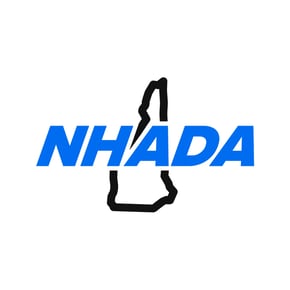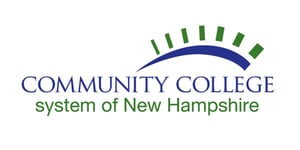
CCSNH Automotive Technology Program Spotlight
The New Hampshire Automotive Education Foundation (NHAEF) works tirelessly with all of the wonderful automotive technology programs within New Hampshire's community colleges to assist with resources, recruiting and being industry's voice ensuring that your needs are met. We often provide you with updates, but this time we thought you would appreciate hearing from the folks at the Community College System of New Hampshire (CCSNH) auto tech programs themselves:
PARTNER SPOTLIGHT
Dealer Management System, Computer Technology, Media/Advertising, Automotive Auction, F & I/Aftermarket Products, Automotive Technology Training & Compliance
 A NHADA Gold PARTNER
A NHADA Gold PARTNERComputer Technology, Automotive Shop Equipment, Environmental Services
 A NHADA Platinum PARTNER
A NHADA Platinum PARTNERF & I/Aftermarket Products, Automotive Technology Training & Compliance, Environmental Services
.png?width=150&name=corp_logo_horz_on_light_with_trademark_symbol_1200w%20(002).png) A NHADA Diamond PARTNER
A NHADA Diamond PARTNER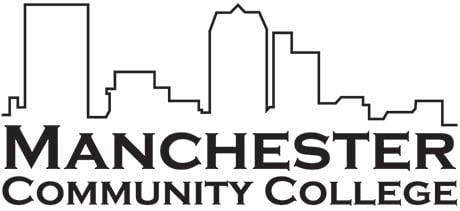
What Is Happening at Manchester Community College?
There are too many to list, but here are a few highlights.
MCC's automotive curriculum was completely overhauled (pun intended) over the past two years or so to capitalize on what always worked well, and change what didn't allow us to raise the bar. We needed changes allowing us to adapt quickly to the latest technology, and guaranteeing the highest quality possible using all of the tools available — and providing more of the good stuff and less of what limits potential. "Taking it to the next level" is what we did, with limitless possibilities beyond that.
Our automotive program is stackable! What that means is that students could start with a certificate completing four courses, earning 19 credits, apply those toward a professional certificate, and so on toward earning their degree. The program was always stackable, but it was not as student-friendly as it could be. Students can clearly see each step required for their end goal. Before the overhaul, the program included 15 automotive courses, and eight general education courses, with a total of approximately 1,200 hours of automotive class and lab instruction. The latest iteration includes 11 automotive courses with nearly 1,600 hours of class and lab instruction, seven general education courses, and an additional 880 hours of real-world work experience at a co-op site. The road to success is student-focused, well-defined, and achievable.
MCC partners with Audi of America, Fiat Chrysler Automobiles, Ford Motor Company, Nissan, Infinity, and Subaru of New England. Each program has its unique requirements and benefits, and each offers factory training, and factory certification, once completed. Graduates leave with training that dealers would otherwise have to obtain for their techs at great expense. The benefits to dealers who wish to get involved are abundant. MCC also has a pathway for those students who have other interests different from the factory-
sponsored programs. Whether their interest is in BMW, Hyundai, or Mercedes Benz, etc., there is a pathway for them to succeed as well. Factory training is not part of the program, but they complete the same course work that all of our students do. The student will have a solid foundation, as the others do, and would be a great candidate to send to factory training during the program or after graduation.
The automotive department at MCC has capitalized on the use of electronic media to supplement classes with on-line learning students, who have 24-7 access. Students of this generation are intimately familiar with electronic media and have been since a very young age. MCC has taken great strides in incorporating media into all of our courses to maximize the learning potential. A requirement for all of our students is to bring their own laptop every day they are in class. This allows us take to full advantage of using media to achieve the best training possible. We've developed what we believe is the best balance of in-class, in-lab, on-line, and real-world work experience to deliver the best possible training we can within the time we have.
Something very exciting and new is coming in January 2019. MCC is launching a Power Sports Technician Certificate (PSTC). We have opened dialog with several motorcycle, snowmobile, and ATV manufacturers, and are working toward offering the same type of program we do with our automobile partners. At this time, we have signed with Polaris and are currently working closely with Yamaha and Kawasaki. Students in the PSTC program will be able to complete factory training while attending MCC. The program is designed to be completed in 40 to 50 weeks, and will give graduates the foundation for becoming a high-level power sports technician. Stay tuned for more news as development continues.
An on-line degree — you might ask how that is possible. Well, it is not designed for the average student. We've been working on this idea for quite some time. Working with an on-line instructional designer, we transformed our face-to-face courses with the goal of offering the same courses in an on-line format. There are so many technicians, service managers, high school instructors and others that have years, and in some cases decades, of experience as technicians, but who have never earned their degree. Using strict criteria to be eligible for the program, current in-service industry techs will be able to apply, and will be accepted provided they meet minimum admission standards. Work continues, and we are very close to launch, so watch for updates.
At MCC, we recognize the challenges businesses face looking for new blood to fill the need in a highly technical and demanding field. We also recognize that we are competing with many industries for the same people. We had to rethink how we recruit, better define what hurdles potential students face, and think out of the box. We changed how we do things to simplify and streamline the admission process. Thus far what we are doing is working. Applications are up, but we still have a lot of work to do to fill the need. We expect our efforts will begin to pay off in this upcoming admissions cycle. We cannot do it alone however; it requires that all stakeholders get involved. Contact us to see how you can help. Everyone here at MCC has worked hard to make this all happen, and we welcome anyone who wishes to assist, it is to your benefit if you do.
Marc Bellerose, Department Chair of Automotive Technology, MCC
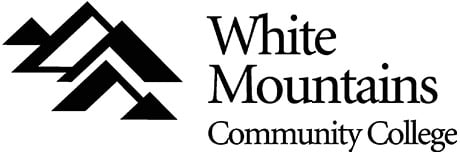 WMCC Automotive Technology Program
WMCC Automotive Technology Program
The United States is home to the second largest passenger vehicle market in the world (behind China). Overall, there are more than 263 million registered vehicles on the road. Additionally, there are more than 141 million commercial vehicles on US roadways. All of them require service periodically. More than one million men and women work at servicing these vehicles. And White Mountains Community College (WMCC) has a role in training these technicians.
WMCC offers students who are interested in being a technician a certificate or degree in Automotive Technology. Both programs run for two years and offer in-depth theory combined with extensive practical training in a well-equipped lab. The program is certified by the Automotive Service Excellence Education Foundation (ASE). WMCC's automotive program is not affiliated with a specific dealership, affording students the opportunity to work on a variety of makes and models of vehicles.
Graduates of the program have extensive knowledge in state-of-the-art mechanical, electrical/electronic and computer systems used in today's vehicles. They have expertise in using micrometers, digital calipers, multimeters, scan tools, torches and welders, computerized alignment systems, brake lathes and emissions analyzers. A highlight of the program for the students is their opportunity to work with the dynamometer, where they can measure torque and horsepower, and check drivability issues. As part of program requirements, students are required to take at least two Automotive Service Excellence (ASE) national exams. Upon graduation, students are prepared for positions in service, sales, parts, and management. Students intending to work in the area of management are encouraged to enroll in the Automotive Service Management degree, which combines auto and business courses.
WMCC Diesel Heavy Equipment Technology
Sometimes bigger is better, especially if individuals have an interest in working on heavy equipment or heavy trucks. WMCC's Diesel Heavy Equipment Technology degree program is unique in the state of NH. Students learn to diagnose and service diesel powered trucks and equipment. Students learn to use a systems approach to analyze and repair all types of diesel powered equipment, transmissions, brakes, hydraulics, related technologies and controlling systems. Extensive lab courses and a co-op experience are supported by rigorous coursework in physics, math, communications and social science. Shop safety, work ethic, and shop management. Customer relations are also stressed.
There are four options in the program: On-Highway (prepares students to work on heavy-duty on-highway trucks); Off-Highway (prepares students to work on large earth-moving, agricultural or forestry equipment); Parts Management and Service Management options prepare students to work as parts and service consultants, parts or service managers or in general service management positions. A one-year Diesel Heavy Equipment Technology certificate is also available. The diesel program is accredited through the Associated Equipment Distributors (AED). WMCC is the only college in New England with the accreditation. The program is fortunate to have numerous partnerships within industry who support the program through scholarship donations, equipment donations, co-op placements for students and employment upon graduation. The program has experienced growth over the past few years, ensuring that WMCC is meeting the needs for well-trained diesel technicians.
Martha P. Laflamme, M.Ed., Vice President of Student & Community Affairs, WMCC
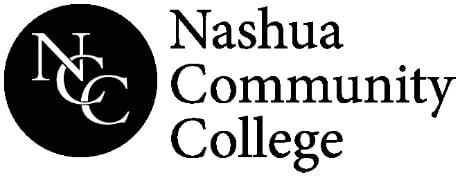
Nashua Community College
Nashua Community College (NCC) has three associate degree programs to satisfy the student that has a passion for automobiles; Automotive Technology, Collision Repair Technology, and Honda PACT Technology. We also offer a one-year certificate in Automotive and Collision Repair for those that want to enter the industry with basic skills.
Enthusiasts looking to hone their automotive skills have their pick of training programs, but there are a few things that set the program at NCC apart.
"We do live work on real cars, with real problems, not 'canned projects,'" said Tim Hogan, associate professor and program coordinator for Automotive Technology. In the end the cars are "really fixed," he said.
The other element is that Hogan and fellow instructor Ben Wagstaff both race. "That brings a whole different level to how we look at cars or motorcycles. We are into the performance side as much, if not more, than the diagnostic and repair part of it," Hogan said.
Fixing cars, trucks, motorcycles, minibikes, and snowmobiles is what they do for fun.
In terms of job prospects, Hogan said there are now more than 400 openings in the state for skilled workers. "We work with the NHADA to place our students into those jobs," he said. Students may also be placed in a powersports shop.
In the collision repair program, students can learn the skills needed to start a career in a modern collision repair shop, transfer the skills into doing restoration work or enter the field of estimating. Many of our graduates have been successful technicians with a few starting their own businesses. Professors Karl Wunderlich and Randy Biggs are graduates of the program themselves having many years of experience in the industry. We believe this brings an advantage to the students who learn from seasoned techs and former business owners.
The Honda PACT (Professional Automotive Career Training) Program is starting its 13th year at NCC. The program is the only one in Northern New England. Students are trained using the latest cars and equipment used in Honda/Acura dealerships. Students not only earn a degree but they also earn up to 50 percent of the certification of the costs required by American Honda to become a 100-percent master-certified technician. Many of our graduates become master techs soon after graduating.
To learn more, visit our website: www.nashuacc.edu
Karl Wunderlich, Associate Professor, Automotive, Aviation & Collision Technology, NCC
Great Bay Community College
First Group of Automotive Technology Students at Great Bay Community College (GBCC) Wrap up Program
Great Bay Community College auto instructors Bob Nienhouse and Marc Wiltfong are close to wrapping up the first class of GBCC's new automotive technology program. Bringing automotive training back to the Seacoast benefits both employers and job seekers in the region. Students are excited to graduate and get started on their new career.
GBCC's automotive technology certificate program is designed to provide students with the skills and knowledge required to work as entry level technicians, performing inspection, diagnostics, maintenance, and repair on automobiles and light trucks. Students learn to locate problems and use a variety of power, hand and diagnostic tools as they work on parts and technical reference materials to prepare for the ASE certification exams.
Motorcycle Technician Program Graduates First Class
The first class of GBCC's Motorcycle Technology and Repair training program graduated in May. Students took classes at Seacoast Harley-Davidson (SHD) in Hampton. Many are now working for SHD at their Hampton and Rochester locations. This unique opportunity prepares students for success by using instructors who are full-time motorcycle technicians. While working for Seacoast Harley-Davidson, three instructors each take one day off a week to teach in a purpose-built training lab right upstairs from the service department.
The certificate was prompted by the need for a local training option, as most of the schools that specialize in certifications for motorcycle technicians are in the south or southeast and too far away to be affordable and accessible for most NH residents. GBCC and the team at Seacoast Harley-Davidson were also in the unique position to provide classroom and lab space for the program, with the additional benefit of building relationships with community members and the prospect of bringing new jobs to the area. Seacoast Harley-Davidson worked closely with GBCC to develop curriculum, student supply lists, and insight into the skills valued most by employers. By hosting the entire program at the dealership, students gain familiarity — and thus confidence — with working in a high-tech maintenance facility. According to Paul Guiliani, program chair, students have commented that they love the program because it is offered at the premier motorcycle dealership in New England.
Lisa Proulx, Public Information Officer, GBCC

Lakes Region Community College
Located in the heart of the lakes region, Lake Region Community College (LRCC) provides several pathways to help aspiring automotive technicians achieve their professional and person goals.
The General Motors Automotive Service Educational Program (GM ASEP) combines learning from the classroom and lab with the application of that learning applied during a paid cooperative education experience at a General Motors dealership or ACDelco Professional Service Center. This educational model allows students in the program to apply what they have learned in school to the real world under the tutelage of experienced technicians while earning money and working toward their associate degree.
Relatively new to LRCC is the Toyota T-TEN (Toyota Technician Education Network) program. T-TEN partners Toyota Motor Company and Toyota/Lexus franchised dealers with talented aspiring technicians. The T-TEN program fills an industry need for well-educated and motivated technicians with specific product knowledge immersed in Toyota Lexus culture of continuous improvement. Successful T-TEN students develop the skills and attitudes that make them capable of continued growth in a technologically dynamic field.
LRCC's Automotive Technology Program provides flexible and stackable options to develop your technical skills and feed your passion to become a top technician when it is convenient for you. Delivered during the evening hours, this program allows you to work a day job while you hone your skills at night. There are one-year, two-year, certificate and AAS degree options available within the program.
For more information about these exciting programs, contact Jamie Decato, department chair, at 603-366-5253 or by email at jdecato@ccsnh.edu.


















.png?width=150&name=Ally_Final%20Logos%20and%20Pairings_11.14.2018-01%20(2).png)


-2.png?width=150&name=Wipfli%20Logo%20Blue%20RGB%20(1)-2.png)


.jpg?width=150&name=NHADA_Partner_FTR_Img_NHADA_Insurance%20(1).jpg)


.jpg?width=150&name=NHADA_Partner_FTR_Img_JMA(1).jpg)


